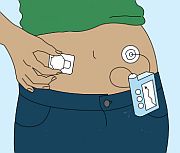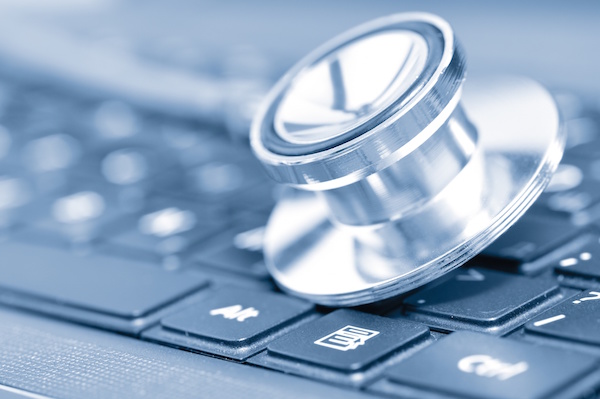
MONDAY, Dec. 8, 2014 (HealthDay News) — Technology can ease some of the burden of managing diabetes, possibly getting blood sugar levels within safe ranges more often, the U.S. Food and Drug Administration says.
People with diabetes don’t make or use the hormone insulin properly. Insulin is needed to convert glucose from food into energy.
Insulin pumps are devices that deliver a steady flow of insulin, even while you sleep. The pump is about the size of a pager and is worn outside the body. It’s connected to a tube that carries insulin from the pump to another tube inserted just under the skin. This tube has to be changed every few days.
There are a number of FDA-approved insulin pumps on the market, including one that’s wireless. Called a patch pump, this device holds insulin in a pod worn on the body with a tiny tube inserted underneath the skin every few days. Insulin delivery is controlled through a handheld device, according to the product’s manufacturer.
Another device that helps with blood sugar management is a continuous glucose monitor (CGM). It has sensors that check your glucose (blood sugar) levels every five minutes, according to the FDA. The readings are sent wirelessly to a receiver. You still need to manually check your blood sugar periodically, but CGMs help to show whether blood sugar is rising, falling or staying the same.
There are also CGM-enabled insulin pumps that communicate wirelessly with a CGM. The sensor readings are displayed on the insulin pump screen instead of on a separate receiver, which means patients have to carry one less piece of equipment, the FDA said.
“These devices are an important technological advance to address some of the challenges people with diabetes face in managing their blood sugar,” Alberto Gutierrez, director of FDA’s Office of In Vitro Diagnostics and Radiological Health, said in an agency news release.
“As they become better integrated with insulin pumps, CGMs can ease the daily burden of people with diabetes who juggle the use of multiple medical devices,” he added.
Scientists are also working on artificial pancreas device systems, which combine a CGM and an insulin pump with a sophisticated computer program that predicts blood sugar levels and insulin needs. These systems monitor blood sugar levels and automatically pump appropriate doses of insulin when needed, according to the FDA.
More information
Learn more about continuous glucose monitoring from the U.S. National Institute of Diabetes and Digestive and Kidney Diseases.
Copyright © 2026 HealthDay. All rights reserved.

